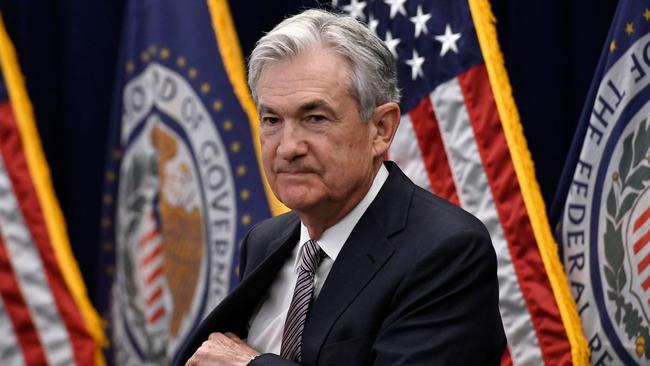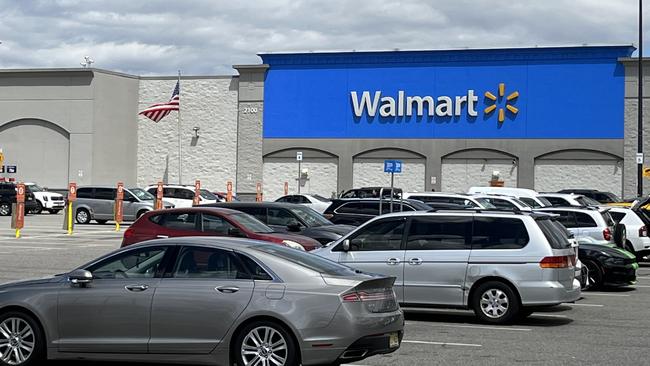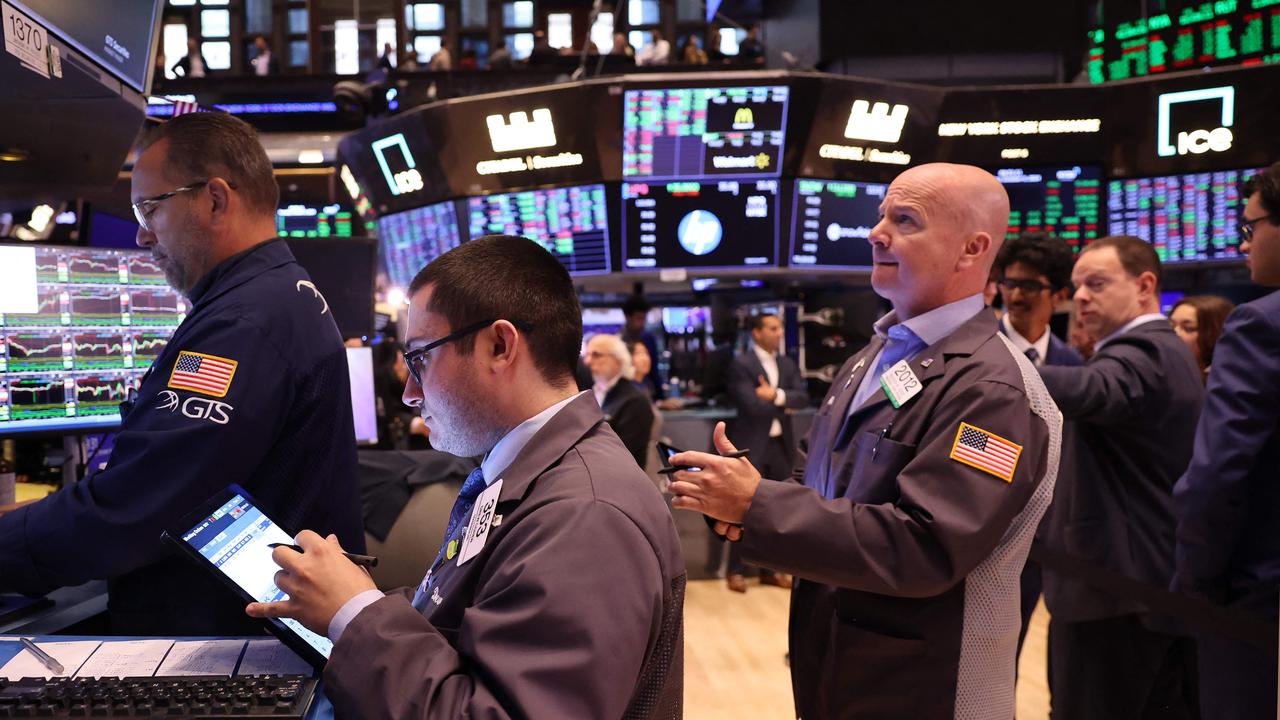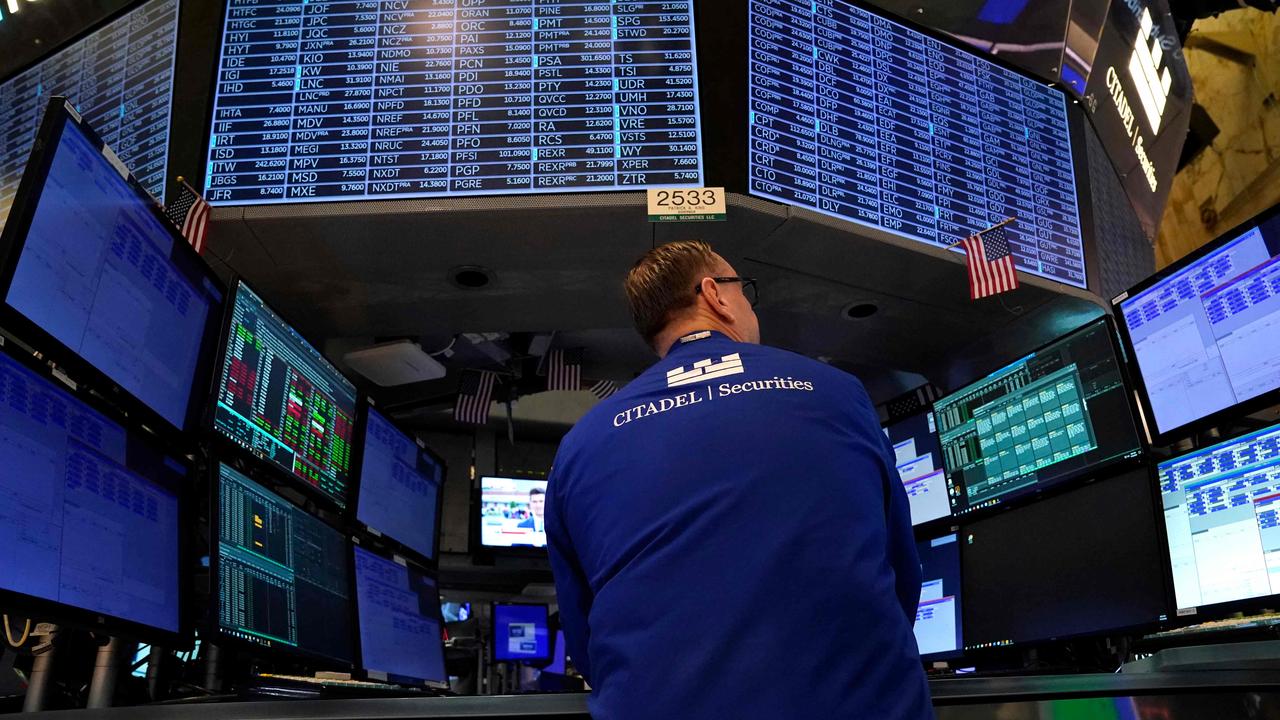BlackRock warns volatility ahead if central banks think they can curb inflation without crushing growth
A profit warning from Walmart was the latest sign of a US recession that Nouriel Roubini expects to be ‘severe’ while BlackRock warns of more volatility ahead.

A profit warning from Walmart was the latest pointer to a US recession that Nouriel Roubini expects to be “severe” and BlackRock believes the Fed will “pivot” away from it before the year is out.
Australia’s S&P/ASX 200 share index crept up to a six-week high close while awaiting Wednesday’s release of domestic CPI data, which seem bound to shape the local interest rate debate, as well as the more important US interest rate decision by the Federal Reserve early Thursday Australian time.
But the local bourse was propped up by heavyweight resources companies which got a lift as iron ore futures rose above $US110 a tonne and as natural gas surged after Russia said it will restart Nord Stream 1 at just 20 per cent capacity - hardly a reason for confidence in the broader market.
Meanwhile Walmart dived 10 per cent in afterhours trading, spilling over to other US retail giants, with Amazon down 3.9 per cent, Target down 5 per cent, Costco down 3.1 per cent.
Walmart cut its profit outlook as surging inflation prompts shoppers to cut back on higher-margin items to buy essentials as they contend with increased prices for fuel, food and other staples.

The world’s biggest retailer now expects a double-digit decline in operating income for the second quarter and full year after previously projecting a decline of just one percent in the current quarter and the potential for a slight increase for the year.
The market was holding its fire before the Fed’s interest rate decision – expected to be a hefty 75 basis points for the second month running – as well as reports from US megacap tech stocks including Alphabet, Meta, Microsoft, Apple and Amazon and US GDP data this week.
If Fed chair Powell argues that recent indicators of slowing growth and waning goods price inflation suggest inflation will fall, and more importantly, if he says policy rates are approaching “neutral” and smaller rate hikes are likely, risk assets will no doubt react positively.
But investors should beware of the US market’s recent tendency to have a second-day selloff after Fed meetings of late. It stems from a healthy scepticism about whether the Fed is ahead of the curve and can substitute the dreaded “hard landing” with one of the “soft” variety.
Dr Roubini – known as Dr Doom for, among other things, correctly predicting the US housing bubble crash of 2007-2008 – told Bloomberg the US faces a deep recession as interest rates rise and the economy is burdened by high debt loads, calling those expecting a shallow downturn “delusional.”
“There are many reasons why we are going to have a severe recession and a severe debt and financial crisis,” the chairman and chief executive officer of Roubini Macro Associates said on Bloomberg TV Monday.
“The idea that this is going to be short and shallow is totally delusional.”
He cited historically high debt ratios after the pandemic, particularly for advanced economies.
He noted that unlike the 1970s, when the US debt ratio was low despite stagflation, US debt has ballooned since the financial crisis, which was followed by low inflation and policy stimulus.
“This time, we have stagflationary negative aggregate supply shocks and debt ratios that are historically high,” he said. “In previous recessions, like the last two, we had massive monetary and fiscal easing. This time around we are going into a recession by tightening monetary policy.”
“We have no fiscal space.”
Meanwhile, BlackRock Investment Institute warns of more volatility ahead “as long as central banks think they can curb inflation without crushing growth.”
“Central banks think they can curb inflation and cause only a mild slowdown, whereas this is unlikely in reality, in our view,” said BlackRock strategists led by Jean Bolvin.
“We see more volatility ahead until central banks take sides in the stark trade-off between growth and inflation they are facing.”
The Fed and ECB are “hostage to the ‘politics of inflation’, yet it’s caused by production constraints, from labour shortages to supply chain kinks, not excessively high demand.
“Rate hikes can cool the latter but don’t really fix the former,” the strategists added.
“Reducing inflation to 2 per cent would mean slamming spending down so hard it would stall the economic restart, yet the Fed and ECB still suggest they can engineer a ‘soft landing,’ where higher rates decrease inflation and cause only a mild slowdown.”
The ECB said it doesn’t see a recession as it raised rates by 0.5 per cent last week.
But BlackRock argues that a soft landing in Europe is “unlikely”.
The world’s biggest fund manager says central banks today “face sharp trade-offs between growth and inflation” and BlackRock sees a “pivot later this year when a recession “comes knocking.”
“We expect the Fed to change course only next year, when the economic effects of rate rises become clear,” they said, noting that market projections now show the Fed cutting rates in 2023.
Similarly, MFS Investment Management chief economist and portfolio manager, Erik Weisman, says the probability of a recession has risen considerably, reflecting concerns over the threat of policy overtightening by the US Federal Reserve.



